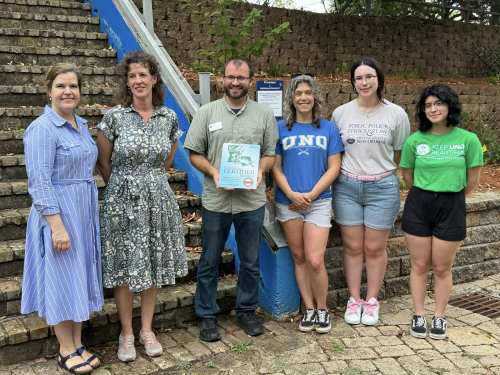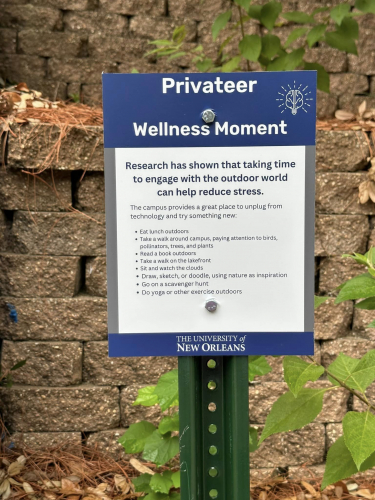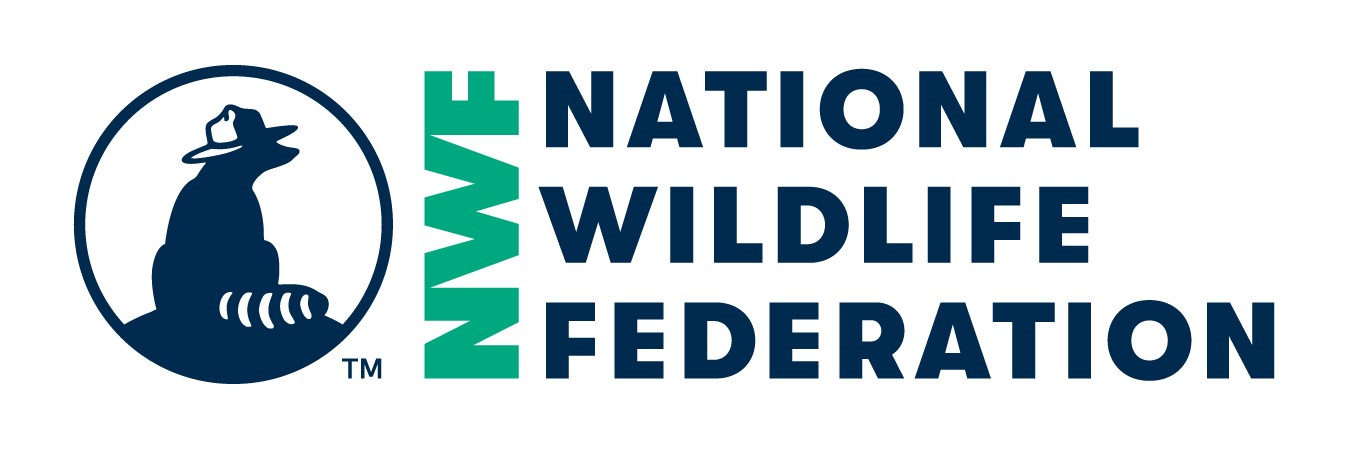Project SEED
EcoTopic / Project Category
Education & Awareness, Habitat & Wildlife, Outdoor Education & Leadership
Rule Label
Project Goal Summary
Project SEED is an applied eco-leadership development initiative centered on environmental sustainability and eco-wellness. Through this project, three UNO students will complete National Wildlife Federation (NWF) Campus EcoLeader Certification by cultivating and maintaining three on-campus greenspaces that support native biodiversity and campus sustainability efforts. In addition to providing signage meant to educate the campus community on the contents and ecological benefits of each greenspace, the students will incorporate signage that promotes eco-wellness.
Project SEED has four primary goals:
Introducing native plant species into campus greenspaces reduces needed grounds-keeping and maintenance efforts and also creates habitats for native wildlife and insect species. Additionally, such greenspaces provide opportunities for the campus community to experience and commune with the natural elements of campus in ways that support positive mental health and wellness.
Project SEED will combine efforts promoting sustainable natural infrastructure elements on the UNO campus with opportunities for three students to participate in applied project-based learning. Outcomes of the project will inform future student-led sustainability projects, as well as a preliminary understanding of how these projects impact participants’ personal and career development.
EcoLeaders Involved:
Dr. Christopher Belser
Emily Miller
Arden Kleinpeter
Genesis Santiago
Project SEED has four primary goals:
- Develop three NWF Campus EcoLeaders
- Cultivate three on-campus native greenspaces that support campus sustainability efforts
- Introduce principles of eco-wellness into the greenspaces
- Research the impact of project initiatives on the EcoLeaders’ personal and career development
Introducing native plant species into campus greenspaces reduces needed grounds-keeping and maintenance efforts and also creates habitats for native wildlife and insect species. Additionally, such greenspaces provide opportunities for the campus community to experience and commune with the natural elements of campus in ways that support positive mental health and wellness.
Project SEED will combine efforts promoting sustainable natural infrastructure elements on the UNO campus with opportunities for three students to participate in applied project-based learning. Outcomes of the project will inform future student-led sustainability projects, as well as a preliminary understanding of how these projects impact participants’ personal and career development.
EcoLeaders Involved:
Dr. Christopher Belser
Emily Miller
Arden Kleinpeter
Genesis Santiago
Rule Label
Project Location
2000 Lakeshore Drive
New Orleans, LA 70148
United States
New Orleans, LA 70148
United States
Rule Label
Share more details about your Project:
Project Goals and News
- As of Summer 2023, the project has made significant progress with all four project goals. Additionally, a no cost extension has been approved for the project to move into AY2024.
- In March 2023, the project team gained final approval for the two planting sites, select plants for the sites, hosted a site clean-up day, and hosted a planting day in which the plants were installed. Both the clean-up day and the planting day involved volunteers beyond the project team.
- In April 2023, the project team participated in UNO’s Earth Day event and engaged participants in a wellness activity related to the gardens. The three student leaders finished their applications for the NWF EcoLeader Certification and the PI has a timeline for completing the research aims of the project.
- Activities have been led by the PI and the three student leaders and have involved UNO students, UNO Gardeners, Master Gardeners of Greater New Orleans, and the Native Plant Initiative of Greater New Orleans.
- 3 students have completed the NWF Campus EcoLeader certification, and the PI has completed the Community EcoLeader certification
- The project has earned EcoLeader Project Certification, and the planting sites have earned certification as a Louisiana Certified Native Plant Habitat (Native Plant Initiative of Greater New Orleans) and NWF Habitat certification.
- We have hosted 2 volunteer events and 1 educational event thus far
- The project thus far has involved 10 UNO student as project staff or volunteers, around 45 UNO students in a wellness activity, 1 UNO faculty member, and 3 UNO staff.
- The project thus far has involved 2 community organizations and approximately 20 community members
- Thus far, the project has resulted in 1 Innovate UNO presentation with other presentations and publications in the works.
- In July, we began adding signs to the sites that are aimed at helping students, staff, faculty, and guests to engage in the campus spaces for wellness purposes (see example below). We will add similar signage to other areas of campus.

From our Habitat Certification Event.

Rule Label
Tag Your Project
native plants, ecoleadership, sustainability, ecowellness
Rule Label
What other social media platforms is your project active on?
Website or Blog
Facebook
Twitter
Instagram
YouTube
Google+
Pinterest
Project Materials and Documents
File #1
[Spacer]
[Spacer]
[Spacer]
[Spacer]
[Spacer]
[Spacer]
[Spacer]
[Spacer]
[Spacer]
Form Details
Average Rating:
Date Added: Aug 23, 2022
Date Last Modified: Jul 18, 2023
Certify Your EcoLeader Project
Are you ready to certify your project with National Wildlife Federation and share your positive impact on the environment?
CERTIFY YOUR PROJECT








Project Feedback